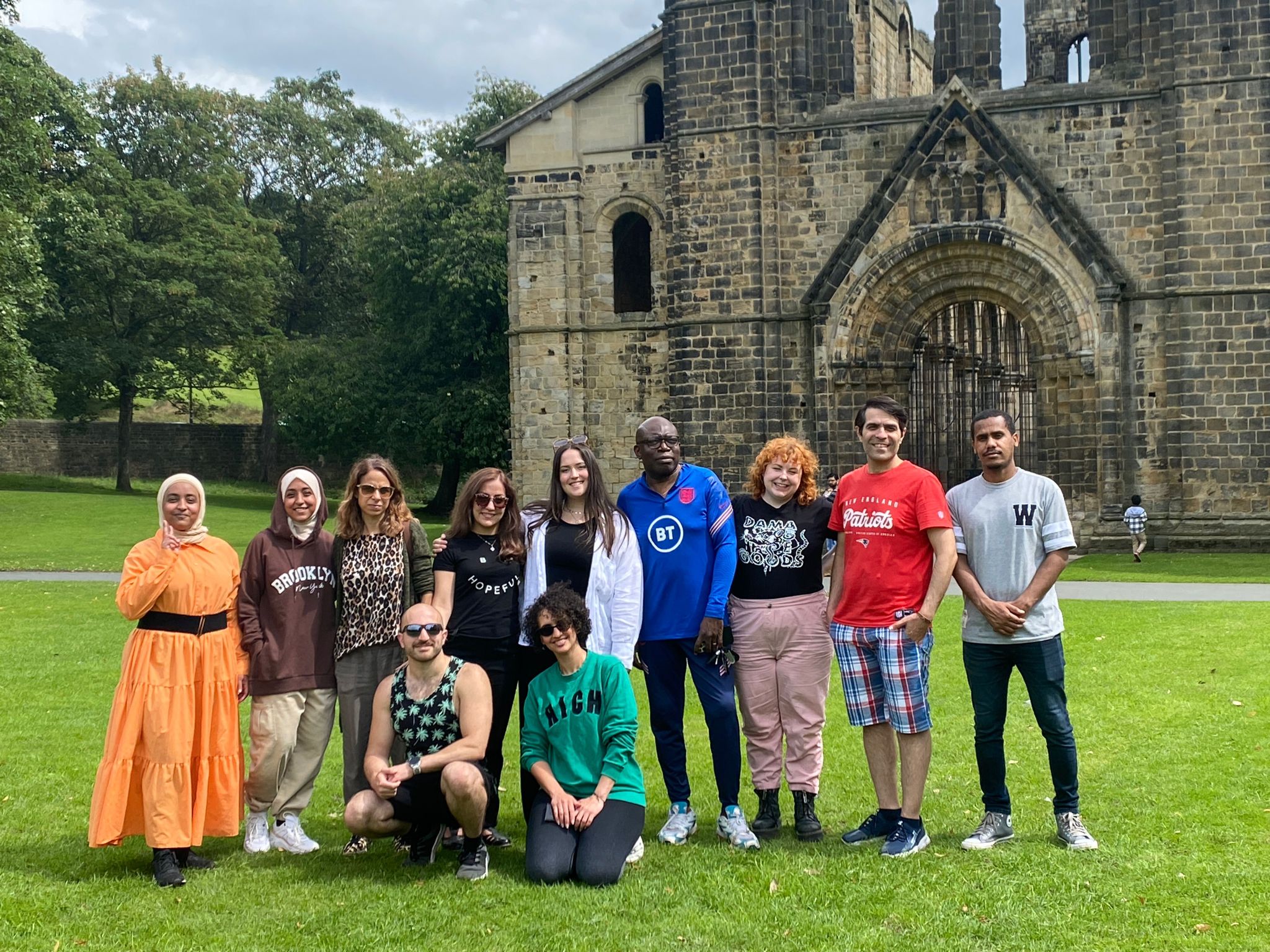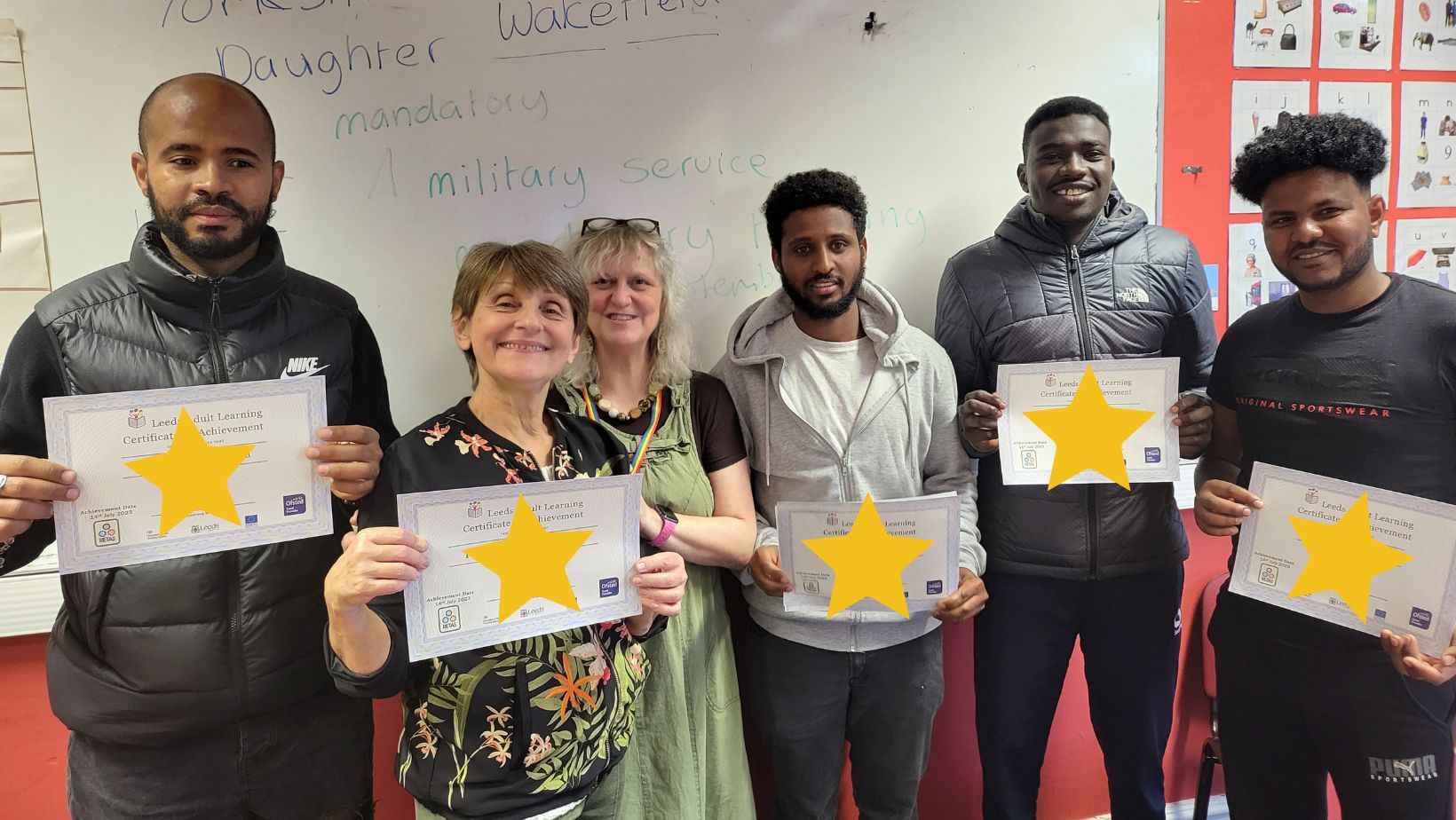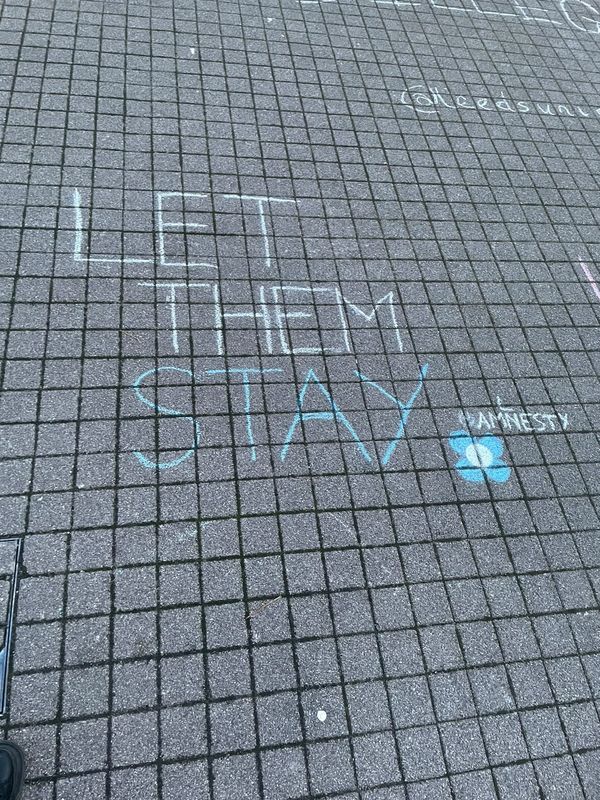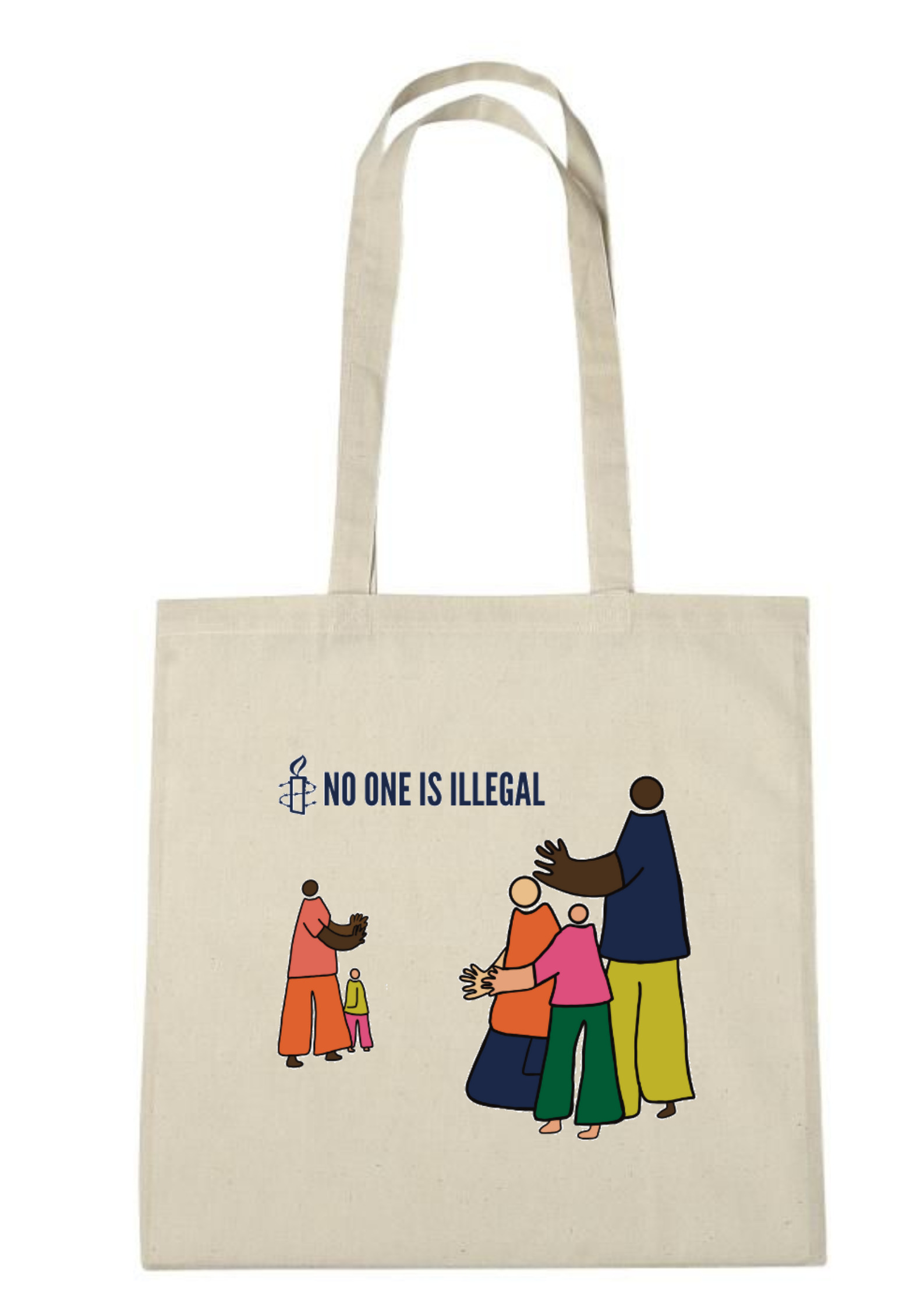Home Office Launches Trial to Reduce Refugee Homelessness: Affects on Refugees And Asylum Seekers in Leeds
Nina Sorrentino reports on the impacts the Home Office’s new trial will have on refugees and asylum seekers in Leeds.
Nina Sorrentino reports on the impacts the Home Office’s new trial will have on refugees and asylum seekers in Leeds.
In a bustling and multicultural city like Leeds, RETAS stands as a beacon of hope and integration for asylum seekers and refugees. Founded in 2002, RETAS embarked on a mission to be a guiding force in the social and economic development of these individuals, not just within Leeds, but beyond. Driven by a commitment to facilitate integration, RETAS provides an array of comprehensive services, including access to employment, education, language classes, health and well-being support, and creative skill programs. Their holistic approach encompasses the entire journey of asylum seekers, from initial arrival to settlement, encouraging self-sufficiency and community integration.
Alongside Hayworth Harrison, a student volunteer for RETAS, I sat down with the team to discuss their journey and evolution.
“RETAS was established back in 2002 and at the time we were one of the first charities and our mission is to work and support the social and economic development of asylum seekers and refugees in the region, not just in Leeds” says Roger Nyantou, the CEO of RETAS. The core aim was clear—to facilitate integration into society by enabling access to employment and education, and by supporting community inclusion. Over the years, RETAS’ growth has been marked by its commitment to this vision.
Initially starting with two staff members, RETAS has since grown to a team of 28, signifying the expanding scope and impact of their work. Their evolution mirrors the changing landscape of asylum seekers and refugees in Leeds. “The nature of the individuals seeking our support has changed,” Roger notes. “Initially, you had people who were highly qualified coming to the UK, now you get people who are not even literate in their own language.” This proved to be a challenge, which led them to start offering IELTS classes (International English Language Testing System) in order to help professionals like doctors, teachers or university students get their qualifications and enable them to work in the UK, but also to help people achieve English proficiency.
The journey of an asylum seeker begins with RETAS upon their arrival in the UK. Accommodated in hotels or shared spaces, these individuals often encounter an array of challenges until they get refugee status. “We offer health and well-being support, language classes, and creative skills programs, so that they can integrate within the community until they get refugee status,” explains Yasir Mohammed, the Volunteer Service Manager. This process is called the “Welcome to Leeds Project.” Once granted refugee status, RETAS’ “28-day project” commences, extending financial assistance to help them open a bank account, guidance on accessing welfare support like Universal Credit, and housing aid through partnerships with Leeds City Council and other providers. They also have employment and education support, as Yasir points out: “once people are settled, they have a house, now they start thinking about work and going to University or joining a college and we have advisors for support with that. He also explains that with RETAS they go through the entire process from refugee to integration in community which makes them a unique organization in West Yorkshire.
RETAS is a robust and inclusive community, striving for a diverse volunteer pool that reflects the multifaceted needs of their service users. With an emphasis on integrating into the local community, they seek volunteers for administrative roles, learning assistance, social media engagement, and fundraising. Their dynamic approach, incorporating placement students from the University of Leeds and involvement in finance, provides a holistic environment that welcomes volunteers from various backgrounds.
The organization values the transformative power of volunteering, emphasizing that approximately 80-85% of their staff were once volunteers themselves. Both Yasir and Roger’s journeys from service users to staff members highlights the extensive career development opportunities RETAS offers.
Through education and engagement, they aim to break down societal barriers, challenging stereotypes and fostering integration. Lorna Gray, the Fundraising and Communications manager, talked more about the activities included in the “Welcome to Leeds Project.” They do all sorts of activities such as beach cleaning, yoga, and rock climbing, which aim to provide holistic support beyond the office space. This multifaceted approach, while showcased partly on social media, is just a glimpse into the comprehensive services RETAS offers to asylum seekers and refugees.
Leila Gurnah, the Curriculum Manager, talked about the types of volunteers they need and how they could support RETAS. They are always searching for people that might be interested in teaching English, whether they are interested in a placement or just want to get some hands-on experience. This way, RETAS can explore more ways in which to help their service users and how they can help them get into University.
Despite plans for expansion, RETAS remains committed to its roots. Whilst exploring potential expansions to other cities, their primary focus is on consolidating their existing services and ensuring quality support before scaling. Their vision for the future intertwines with the needs of those they support, pivoting and evolving in tandem with the evolving landscape of refugee policies and needs. Through partnerships with universities and communities, RETAS aims not only to offer support but also to empower individuals to become advocates and allies in the integration process.
RETAS is now organizing a raffle until January 2nd. All donations go towards supporting refugees and asylum seekers. A single entry is £5 and a double is only £8. If you’d like to support them and enter the race for some lovely prizes from Bundobust, Eat Your Greens, Noonchi Cake, HiFi Comedy Club, Junkyard Golf and more, visit their crowdfund here: https://www.crowdfunder.co.uk/p/retas-raffle


The LUU societies STAR (Student Action for Refugees) and Amnesty International have been organising displays of solidarity with Ukraine around campus.
Soon after Russia invaded Ukraine, STAR created a banner with the Ukrainian flag in the centre, around which students could write messages of support. This banner was then hung up in the LUU foyer.
Messages written by students included “justice for the POC fleeing Ukraine” in response to myriad stories of people of colour facing racist discriminiation both as they leave Ukraine and as they try to settle into countries taking in refugees like Poland. Another student wished to show solidarity with ordinary Russians, some of whom have publicly protested the unprovoked invasion, leading to mass arrests, and others have fled to neighbouring countries like Finland, writing “Putin’s war not Russia’s war.”

Similarly, Amnesty members wrote messages in chalk around campus. Many students protested the British government’s refusal to take in refugees, including turning away 300 at the Channel Crossing at Calais. This response is part of the Home Office’s strategy to neglect their responsibility to take in refugees by passing the controversial Nationality and Borders bill which would leave most refugees seeking asylum with a lesser status with fewer rights (clause 11) and which empowers the Home Office to strip British nationals of their citizenship without notice (clause 9).
As Rona, the President of LUU Amnesty said, “Our campaign this semester is based on the Nationality and Borders bill, so our aim is to get as many as possible to know about it. We thought the best way to do this was by writing messages in chalk either supporting the refugees coming to the UK or in opposition to the government. Initially it was just about refugees coming to the UK but as the Ukraine war became more of an issue, we knew we had to tie it in somehow. The slogan “no one is illegal” really encapsulates our mindset and Amnesty’s whole stance on the refugee crisis.”
Last week, LUU Amnesty held their biannual live music event Jamnesty and raised £1044 to be split equally between Leeds Asylum Seekers Support Network which supports refugees and asylum seekers in Leeds and Amnesty International.
LUU Amnesty are continuing to raise money for the charities by selling hand-printed tote bags. Purchases can be made on Engage for £5.50.

Little Amal, a 3.5-metre puppet of a Syrian child refugee, is making an 8,000-kilometre journey across Europe, via Yorkshire.
The puppet has been created by Handspring Puppet Company, the creators of the War Horse puppets, to represent the tens of thousands of displaced refugee children in need of assistance to rebuild their lives after leaving their war-torn countries.
Little Amal originated as a character in the play “The Jungle” created by Good Chance Theatre in 2015 in their temporary Dome theatre based in the refugee camp of the same name in Calais, France.
The Dome theatre became a cultural hub in the camp, offering a safe and creative space for residents, through programmes of workshops and weekly “Hope Shows” to showcase their work. The population of the camp hit over 8,000 migrants at its peak, before demolition in October 2016, when the Dome theatres moved to continue their work in Paris and London.
The character of Amal, which means “hope” in Arabic, is a 9-year-old displaced refugee searching for her mother and a better life. The project of her journey has been named “The Walk” by the theatre company undertaking it.
The puppet is operated by one person on stilts inside the torso moving the legs and head, and two people on either side operating the arms.
The creators of Amal highlighted that she does not have a voice since she is traveling to countries that don’t speak the same language as her. However, the operators share one mind in embodying the character of Amal, making her a great non-verbal communicator and empathiser.
Following Amal on her walk is a festival of art directed by Amir Nizar Zuabi.
Good Chance said: “The Walk is a celebration of migration and cultural diversity that will tell the story of the contributions made by refugees and immigrants. It represents the refugee story as one of potential, success, respect, hospitality and kindness.”
In each city Amal visits, local creatives, artists and communities have been invited to greet her.
By live streaming events, Good Chance has offered the opportunity for us to invite Amal and the festivities into our homes.
The Walk began at the Syrian-Turkish border in July, and since then, Amal has travelled through 65 cities, towns and villages across Turkey, Greece, Italy, Switzerland, Germany, Belgium, France before reaching the UK in October.
In addition to raising awareness, Good Chance wants to rewrite the narrative following migrants, asylum seekers and refugees.
Nizar Zuabi said: “It is because the attention of the world is elsewhere right now that it is more important than ever to reignite the conversation about the refugee crisis and to change the narrative around it.
“Yes, refugees need food and blankets, but they also need dignity and a voice. The purpose of The Walk is to highlight the potential of the refugee, not just their dire circumstances.
“Little Amal is 3.5 metres tall because we want the world to grow big enough to greet her. We want her to inspire us to think big and to act bigger.”
October 22nd saw Amal pass through London, exploring Shakespeare’s Globe, Somerset House and the South Bank Centre before being met by 4,000 people as she arrived in Yorkshire on October 29th, reaching Sheffield on a canal barge.
All this has been made possible by an international team of 17 puppeteers, videographers and technicians who have been operating Amal and recording the festivities across the continent, highlighting the sense of global community.
Amal completes her journey on November 3rd reaching her final stop in Manchester.
Image credit: BBC